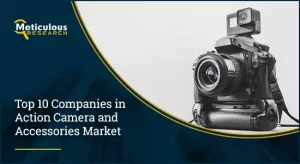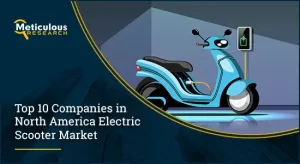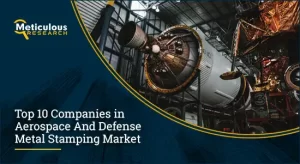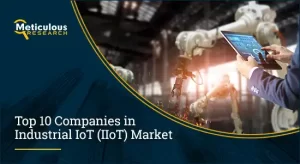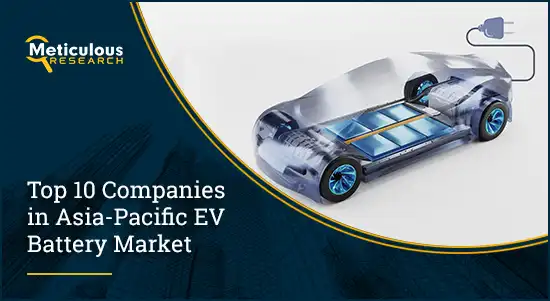
The Asia-Pacific EV Battery Market is expected to grow at a CAGR of 23.3% during the forecast period to reach USD 120.9 billion by 2029, from USD 27.9 billion in 2022. The growth of this market is mainly attributed to the increasing adoption of EVs in emerging economies, the increasing investments by leading automotive OEMs to set up battery manufacturing facilities in the region, and the rising number of government initiatives that support EV and EV battery manufacturing in the region. The growing deployment of battery-as-a-service is expected to provide significant growth opportunities for electric vehicle batteries providers in the coming years. However, the less energy density of lithium-ion batteries and high import costs of raw materials for battery manufacturing are expected to hinder the growth of this market to a notable extent.
Here are the top 10 companies operating in the Asia-Pacific EV Battery Market
![]() SK Innovation Co., Ltd. is a company engaged in the oil and chemical business. The company operates through five reportable segments: Petroleum, Petrochemicals, Lubricants, Battery, and Others. For the first time in the electric vehicle battery industry, SK Innovation applied high energy density ternary materials to lithium-ion batteries for mass production. Based on such technological capabilities, SK innovation signed supply contracts with major global automakers, Hyundai Motor Group, BAIC Group, and Daimler AG.
SK Innovation Co., Ltd. is a company engaged in the oil and chemical business. The company operates through five reportable segments: Petroleum, Petrochemicals, Lubricants, Battery, and Others. For the first time in the electric vehicle battery industry, SK Innovation applied high energy density ternary materials to lithium-ion batteries for mass production. Based on such technological capabilities, SK innovation signed supply contracts with major global automakers, Hyundai Motor Group, BAIC Group, and Daimler AG.
The company has a strong global network of subsidiaries and associate companies that includes SK Energy (South Korea), SK Global Chemical (South Korea), SK Lubricants (South Korea), SK Incheon Petrochem (South Korea), SK Trading International (South Korea) and SK IE Technology (South Korea). With its subsidiaries and a strong distribution network, SK Innovation has its presence across Asia, Europe, the U.S., and Korea. As of March 2021, the company had a headcount of 2,443 employees globally.
LG Chem, Ltd.
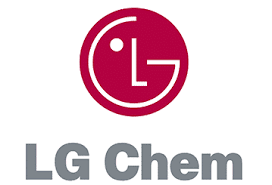 LG Chem is a chemical company. The company operates through six reportable segments: Petrochemicals, Energy Solutions, Advanced Solutions, Life Sciences, and Common & Others. The company manufactures and supplies batteries through its subsidiary, LG Energy Solution Co., Ltd. The subsidiary LG Energy Solution Co., Ltd. was established through the split-off of the Energy Solution business from the parent company.
LG Chem is a chemical company. The company operates through six reportable segments: Petrochemicals, Energy Solutions, Advanced Solutions, Life Sciences, and Common & Others. The company manufactures and supplies batteries through its subsidiary, LG Energy Solution Co., Ltd. The subsidiary LG Energy Solution Co., Ltd. was established through the split-off of the Energy Solution business from the parent company.
The company is a manufacturer and supplier of batteries for various applications, including mobile phones, laptops, computers, and electric vehicles. With its subsidiaries and a strong distribution network, the company has its presence across Asia, Europe, America, and Korea. As of 2021, the company had a headcount of 18,800 employees globally. LG Chem is actively involved business expansion and in 2021, they partnered with General Motors (U.S.), to invest more than USD 2.3 billion in a second battery cell plant for electric vehicles in Tennessee, U.S. The construction of this plant was aimed at supporting the production of General Motor’s upcoming Cadillac Lyriq Crossover and other upcoming EVs.
Farasis Energy (Ganzhou) Co., Ltd.
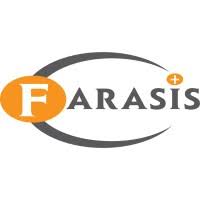 Farasis Energy manufactures lithium-ion pouch batteries. The company offers green mobility, smart energy storage, and low-carbon construction solutions. Under its green mobility solution, Farasis Energy provides battery solutions with high safety performance by reducing carbon emissions by an average of 90% during their life cycle. The company is also a provider of cost-effective energy storage solutions. In addition, the company promotes the electrification development of construction machinery, such as excavators & forklifts, and agricultural machinery.
Farasis Energy manufactures lithium-ion pouch batteries. The company offers green mobility, smart energy storage, and low-carbon construction solutions. Under its green mobility solution, Farasis Energy provides battery solutions with high safety performance by reducing carbon emissions by an average of 90% during their life cycle. The company is also a provider of cost-effective energy storage solutions. In addition, the company promotes the electrification development of construction machinery, such as excavators & forklifts, and agricultural machinery.
Farasis Energy is actively partnering with stakeholders of electric mobility around the world to increase their market presence. For instance, in 2020, Farasis Energy partnered with TOGG (Turkey), an electric vehicle manufacturer. This partnership was aimed at the joint development and production of battery modules in Turkey. The partnership combined Farasis Energy’s technology with TOGG’s automotive industry to bring e-mobility solutions to new markets in the region.
SVOLT Energy Technology Co., Ltd.
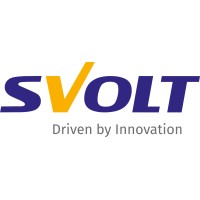 SVOLT Energy Technology Co. Ltd. (SLOVT) is a Chinese company engaged in developing and producing lithium-ion batteries, battery systems for electric vehicles, and energy storage products. The company supports an integrated approach to vehicle architecture and battery systems. The company has a headcount of approximately 3,000 employees globally. In 2019, SVOLT registered over 550 patents.
SVOLT Energy Technology Co. Ltd. (SLOVT) is a Chinese company engaged in developing and producing lithium-ion batteries, battery systems for electric vehicles, and energy storage products. The company supports an integrated approach to vehicle architecture and battery systems. The company has a headcount of approximately 3,000 employees globally. In 2019, SVOLT registered over 550 patents.
SVOLT is actively engaged in new product development and product launches to expand its market share in the electric vehicle batteries market. For instance, in 2021, SVOLT Energy started producing 10t-level non-cobalt battery cathode material. The product is developed at its plant in Changzhou city in east China’s Jiangsu province. The company is also planning to expand its presence in Europe. In November 2020, SVOLT Energy announced its plan to build the first European lithium-ion cell Gigafactory in Saarlouis, Germany. The company invested USD 2.4 billion in the expansion of its manufacturing capacity.
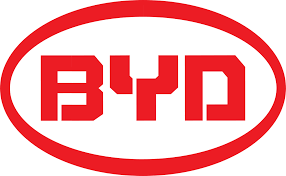 BYD is engaged in the automobile business. The company offers a wide range of solutions and services, including new energy vehicles & traditional fuel-engine vehicles, handset components & assembly services, rechargeable batteries, photovoltaic products, and urban rail transit systems.
BYD is engaged in the automobile business. The company offers a wide range of solutions and services, including new energy vehicles & traditional fuel-engine vehicles, handset components & assembly services, rechargeable batteries, photovoltaic products, and urban rail transit systems.
BYD Company operates through four reportable segments: Rechargeable Batteries & Photovoltaic Products, Mobile Handset Components Assembly Service & Other Products, Automobiles and Related Products and Other Products, and Others. The company’s subsidiaries include BYD Lithium Batteries Co., Ltd. (China), Shanghai BYD Co., Ltd. (China), BYD Auto Co., Ltd. (China), BYD Precision Manufacture Co., Ltd. (China), and Huizhou BYD Battery Co., Ltd. (China).
With its strong distribution network, the company has its presence across Hong Kong, Macau, Taiwan, and other countries. As of December 2021, the company had a headcount of 288,200 employees globally. In 2018, BYD announced a joint venture with Changan Automobile (China), an automobile manufacturer, to jointly manufacture batteries for electric vehicles. Through this joint venture agreement, both companies collaborated to produce a total battery capacity of 10GWh.
Meticulous Research in its latest publication on Asia-Pacific EV Battery Market has predicted the growth of 23.3% during the forecast year 2022-2029.
Samsung SDI Co., Ltd.
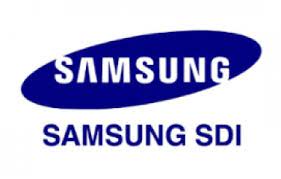 Samsung SDI is engaged in manufacturing and distributing secondary batteries. The company operates through two reportable segments: Energy Solutions and Electronic Material.
Samsung SDI is engaged in manufacturing and distributing secondary batteries. The company operates through two reportable segments: Energy Solutions and Electronic Material.
Samsung SDI provides a wide range of products, including small-sized Li-ion batteries, automotive batteries, ESS, and electronic materials. The company’s subsidiaries include Samsung SDI Japan Co., Ltd. (Japan), Samsung SDI America, Inc. (U.S.), Samsung SDI Hungary Rt (Hungary), and Samsung SDI Europe GmbH (Germany). The company has its R&D center in Suwon, Korea. With its distribution network, the company has a strong presence within the domestic region and other countries.
Contemporary Amperex Technology Co. Limited
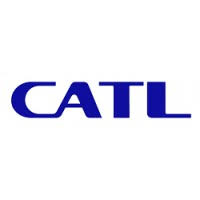 Contemporary Amperex Technology Co. Limited (CATL) is a Chinese company that provides lithium-ion batteries. CATL also focuses on the R&D, production, and sales of power battery systems and energy storage systems for energy vehicles. The company operates in key areas of the industry chain, including battery materials, battery systems, and battery recycling. As of December 2020, the company had a headcount of 20,375 employees globally. The company signed strategic agreements with global automakers to increase presence in the electric vehicle batteries market. For instance, in 2020, CATL signed an agreement with Honda (Japan), an automaker, to form a strategic alliance on new electric vehicle batteries and promote e-mobility. This agreement aimed to enable discussions for joint developments, stable supply, and development of solutions for the recycling & reuse of batteries.
Contemporary Amperex Technology Co. Limited (CATL) is a Chinese company that provides lithium-ion batteries. CATL also focuses on the R&D, production, and sales of power battery systems and energy storage systems for energy vehicles. The company operates in key areas of the industry chain, including battery materials, battery systems, and battery recycling. As of December 2020, the company had a headcount of 20,375 employees globally. The company signed strategic agreements with global automakers to increase presence in the electric vehicle batteries market. For instance, in 2020, CATL signed an agreement with Honda (Japan), an automaker, to form a strategic alliance on new electric vehicle batteries and promote e-mobility. This agreement aimed to enable discussions for joint developments, stable supply, and development of solutions for the recycling & reuse of batteries.
GS Yuasa International Ltd.
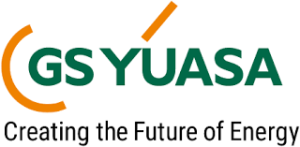 GS Yuasa manufactures and distributes automotive batteries, industrial batteries, power supply systems, switch gears, lighting equipment, ultraviolet systems, and other electrical equipment.
GS Yuasa manufactures and distributes automotive batteries, industrial batteries, power supply systems, switch gears, lighting equipment, ultraviolet systems, and other electrical equipment.
The company operates through four reportable segments: Automotive Batteries-Japan, Automotive Batteries-Overseas, Industrial Batteries & Power Supplies, and Automotive Lithium-ion Batteries. As of December 2020, the company had a headcount of 14,217 employees globally. The company is actively engaged in acquisitions as its primary strategy to increase presence in the electric vehicle batteries market. For instance, in 2021, GS Yuasa acquired all the shares of Sanken Densetsu Co., Ltd. (Japan). This acquisition enabled GS Yuasa to improve its competitive edge and achieve significant market growth.
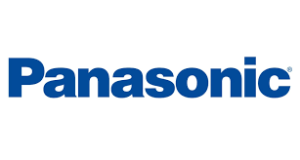 Panasonic Corporation is a company engaged in developing, manufacturing, and selling electrical and electronic products. The company operates through five business segments: Appliances, Life Solutions, Connected Solutions, Automotive, and Industrial Solutions. The company’s offerings cater to the automotive, avionics, building & construction, consumer lifestyle, education, energy & utilities, food services & food retail, manufacturing, government, and retail sectors. Under its Automotive segment, Panasonic supplies battery cells for hybrid, plug-in hybrid, and full-electric vehicles. The company also designs, engineers, and manufacturers complete battery systems.
Panasonic Corporation is a company engaged in developing, manufacturing, and selling electrical and electronic products. The company operates through five business segments: Appliances, Life Solutions, Connected Solutions, Automotive, and Industrial Solutions. The company’s offerings cater to the automotive, avionics, building & construction, consumer lifestyle, education, energy & utilities, food services & food retail, manufacturing, government, and retail sectors. Under its Automotive segment, Panasonic supplies battery cells for hybrid, plug-in hybrid, and full-electric vehicles. The company also designs, engineers, and manufacturers complete battery systems.
Panasonic operates across Japan, the Americas, Europe, Asia, and China. The company has approximately 529 consolidated companies, some of which include Panasonic Ecology Systems Co., Ltd. (Japan), KMEW Co., Ltd. (Japan), and Panasonic Liquid Crystal Display Co., Ltd. (Japan). As of March 2021, the company had a headcount of 2,45,546 employees globally. In 2020, Panasonic Corporation announced a joint venture with Toyota Motor Corp. (Japan) to develop a new generation of batteries for electric vehicles. The joint venture—Prime Planet Energy & Solutions—specializes in automotive prismatic batteries.
A123 Systems, LLC.
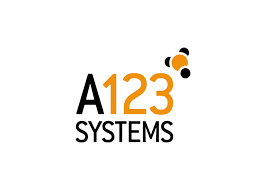 A123 Systems manufactures, develops, and supplies industrial batteries and energy storage systems. A123 Systems provides products, such as systems, modules, and cells for the automotive industry. The company utilizes Ultra Phosphate and NMC technologies for its offerings. The company’s offerings cater to various applications, including commercial vehicles, motorsports, industrial markets, and low-voltage hybrids, plug-in hybrids, and full-electric vehicles. The company has its presence across the U.S., China, Germany, and the Czech Republic.
A123 Systems manufactures, develops, and supplies industrial batteries and energy storage systems. A123 Systems provides products, such as systems, modules, and cells for the automotive industry. The company utilizes Ultra Phosphate and NMC technologies for its offerings. The company’s offerings cater to various applications, including commercial vehicles, motorsports, industrial markets, and low-voltage hybrids, plug-in hybrids, and full-electric vehicles. The company has its presence across the U.S., China, Germany, and the Czech Republic.
Popular Mentions: Vehicle Energy Japan Inc. (Japan), Northvolt AB (Sweden), Exide Industries Ltd. (India), Primearth EV Energy Co., Ltd. (Japan), and E-one Moli Energy Corp.
Authoritative Research on the Asia-Pacific EV Battery Market – Opportunity Analysis and Industry Forecast (2022-2029)
Need more information? Meticulous Research®’s new report covers each of these companies in much more detail, providing analysis on the following:
- Recent financial performance
- Key products
- Significant company strategies
- Partnerships and acquisitions
The Comprehensive report provides market size estimates, market share analysis, revenue numbers, and coverage of key issues and trends.


